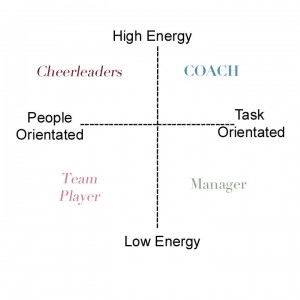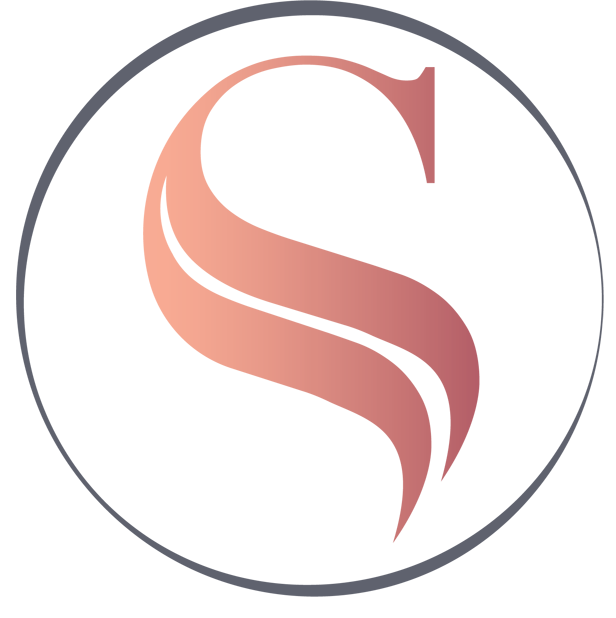“There are many different tests online to help you pinpoint your personality type. Some have as many as sixteen different types. This kind of depth and complexity can be useful for understanding a lot about ourselves. It also infers there are only 16 types of people. It is also somewhat limiting as it doesn’t allow for change or growth within our basic personality.
I’ve used a basic 4 type personality model for years because it gives us general understanding of who we are, but allows for infinite variation within our type and the possibility for movement, or growth.
Picture a large plus sign +. The vertical axis is our basic energy level, or “pace” as Charles Boyd calls it in his book Different Children Different Needs. At the bottom are the extremely laid back, casual people, at the top are folks who are driven to move all the time. The horizontal axis represents a continuum of people-focused on the left to task orientated on the right. These two lines form a grid with 4 quadrants. The upper left quadrant is our Sanguines, top right are Cholerics, bottom right are the Melancholy types, and bottom left is for Phlegmatics.
Cheerleaders, as I’ve mentioned before, are average to high energy output and average to extremely high people persons. They are friendly to everyone, love large gatherings, would rather move than sit, and can be flashy and free thinking. Cheerleaders have the ability to remain optimistic and gullible, wide-eyed innocents, no matter what life throws at them. The draw toward fun and games can help Cheerleaders liven up a party, but it can also make them a somewhat less than reliable employee.
Coaches share the high side of the energy level with Cheerleaders but focus their efforts on achieving things. Coaches are the goal setters, the get-it-done-no-matter-if-it-kills-me people. They work well alone, but they know exactly what everyone else needs to do and they’re not afraid to tell them so. Where the Cheerleader organizes parties, Coaches organize projects.
All teams need a Manager. Found on the lower right side of our grid, Managers are great at attending to details. They’ll keep the stats, organize the locker room, solve the logistics and rarely get distracted from their task. Managers think everything through carefully. They spend so much time thinking and analyzing, all of life seems like serious work to them. Fun is a foreign concept.
Sharing this tendency for quiet introspection are the Team Players at the lower left of our model. Flexible, easy going and agreeable, Team Players have the unique ability to operate in any of the other three quadrants, even stretching to the opposite corner to lead like a Coach if the need arises. They will rarely start an argument and are the first to mediate other’s conflicts. With their slower pace, Team Players can be counted on to be calm in almost any situation sometimes to the point of inertia.
If you were to plot their places on the grid, each of our team mates would sit on the far outer corners. People are not so easily or obviously pegged. You might identify with the Cheerleader’s friendliness, but prefer a Team Player’s slower pace, putting you closer to the border between them. Both Managers and Team Players love to help people, Managers by devising systems to better people’s lives, Team Players by listening and serving. If you like to help people but from a distance, you might be a blend of the two. Full Coaches can be tactless and bossy, but a Coach blended with Cheerleader tendencies softens that dictatorial stance. Hopefully, our objective is to move toward the center of the grid. Still unique in our own way but overcoming our weaknesses and growing in our understanding of others.
If you’d like to take a quick quiz to help you determine which type you are, click here
